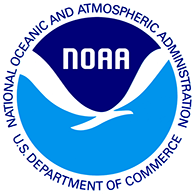CCRS20 ANNOUNCEMENT ABOUT COVID-19
After careful consideration, the steering committee of the Chesapeake Community Research Symposium has decided to hold the symposium as a virtual conference. As our understanding of the scale of the unfolding COVID-19 pandemic has developed, we feel that this is the most prudent option short of cancelling the symposium completely. Please know that everyone who has registered for the symposium will receive a FULL refund and we will be contacting registrants shortly with additional details on the refund process. It is our intention to host the virtual symposium free of charge for participants.
For more details, please visit here.
With the completion of the Chesapeake Bay Program’s 2017 mid-point assessment of the EPA’s Total Maximum Daily Load (TMDL) regulatory process, it is timely to convene the Chesapeake Community Research Symposium 2020 aimed at examining the observations and models that were used in that assessment and discuss future needs and challenges for the next one in 2025 and beyond. There is a need for higher temporal resolution measurements and higher spatial resolution models. Research should be focused on developing a better mechanistic understanding about and models of physical, biological and chemical processes in the airshed, watershed and estuary. Additionally, more flexible sampling and modeling approaches are also needed for resolving management impacts on water quality and living resources over a wide range of scales.
The TMDL faces several challenges as we enter the third decade of the 21stcentury:
By bringing together managers, scientists, and stakeholders for a series of plenary talks, panel discussions, and special sessions, the 2020 Chesapeake Community Research Symposium will highlight recent progress, challenges and prospects for research, monitoring and modeling efforts that are used to guide management and restoration efforts in Chesapeake Bay.
THE DETAILS
The Chesapeake Community Research Symposium 2020 will take place as virtually through Zoom from June 8-10. The symposium will be free of charge for all participants. Please note, if you have previously registered for the symposium, you will have to register again.
When: June 8-10, 2020
Cost: Free!
Registration is closed
SESSIONS
SYMPOSIUM PROGRAM
ZOOM GUIDANCE DOCUMENT
ADDITIONAL WORKSHOPS AND EVENTS
Google Earth Engine Workshop
Google Earth Engine (GEE) is a web-based and free platform that contains more than thirty years of historical satellite imagery and scientific datasets, updated and expanded daily. Scientists and stakeholders can instantly access these data through a relatively simple application programming interface (API), and perform a suite of common geospatial analyses using high performance cloud-based computing resources. In the past few years environmental scientists have used GEE to perform global scale analyses on the occurrence of harmful algal blooms, track the loss of intertidal areas, and map changes in land use through time.
This workshop will provide hands-on training of GEE’s web-based JavaScript API which can be accessed from a web browser. The workshop will start with a 30-minute introduction and proceed to a “follow me” style coding lab in which the instructor will write code in the GEE Code Editor (projected such that participants can see it) and participants follow along on their own laptop. The hands-on workshop will take 2-3 hours, depending on participant experience.
In this workshop, participants will learn how to access imagery via the GEE Data Catalog and will apply basic code to load and perform common environmental geospatial analyses such as deriving and mapping NDVI, land use, and water quality metrics through space and time. Focus will be given to Chesapeake Bay but can be replicable for other study sites.
Prerequisites:
No previous experience with GEE or JavaScript is necessary for this beginner workshop, however programming experience and basic knowledge of remote sensing and/or GIS is desirable. Willingness to learn programming is required.
All participants should bring a laptop with Google Chrome installed. Each participant should have signed up to use GEE prior to the workshop (earthengine.google.com). Signing up with GEE can take up to several days. Training is limited to 30 participants. Please fill out the Google Form to register: https://forms.gle/mhBtZhgpHKFitL387. Email Anna Windle (awindle@umces.edu) with any questions.


